#a moral role model etc
Text
all about role models⋆.ೃ࿔*:・🧁

FIND ROLE MODELS ;
its important to have people that u look up to. people with similar morals and values as you and people who have achieved things that u want to achieve, or things similar to what u want to achieve.


you can find mentors or role models or, simply look up to people even if u dont know them personally. for example one of my role models is kimora lee simmons. i look up to how effortlessly glamorous she is and how much of an amazing business woman she is, shes also a biracial woman just like me.
find traits in ur role models that u already have, whether thats interests, talents, physical similarities etc.
finding role models helps to give u inspiration. something important to remember though is to emulate, NOT imitate. use their qualities and achievements as motivation to discover and develop your own individuality.
for this post im going to focus on one of my role models, the wizard liz because this is a mindset based post...💬🎀
STUDY THE MINDSET OF UR ROLE MODELS ;
their conception of self ; the wizard liz has high standards for herself because she knows her worth. because of that she won't settle and she doesn't let herself get walked all over.


something that liz has said in her videos before was to be okay with people misunderstanding you. dont go out of ur way to get worked up just bcuz someone sees something in a different way then u do.
her conception of self continued ; in another video she says to "make a list of tough situations that you've handled in the past and what skills you used to handle them". she has a lot of trust and belief in herself and her abilities
after taking notes on the mindset of ur role models (like so) i can see what resonates with me and what doesn't, i can see clearly ways in which we are similar and ways in which we are different.
WHAT ABOUT YOU? ;
take time to formulate ur own opinions. take time to think, "hey what do i think about this" without the influence of others views or opinions what do u think originally. grow comfortable with thinking for yourself.
trust ur gut feelings and intuition
be confident in ur own mind and trust that you have the ability to make the best choices for yourself.


another thing, grow comfortable with asking yourself for advice. something that i realized is that often times when we ask others for advice, we already know what we should do but we wanna hear it from someone else but its important to just ask urself some times.
"what do i rly want" or "what is the best thing for me to do" are things that u should be asking urself instead of asking others. dont let others peer pressure you into thinking the way that they do. THATS NOT TO SAY DONT BE OPEN MINDED, THATS NOT WHAT IM SAYING. but im saying think for urself first.
SOME OF MY ROLE MODELS ;
kimora lee simmons - successful business woman, biracial queen, effortlessly glamorous
beyoncé - passionate about her talents and recognized as one of the best in her industry
wonyoung - smart, beautiful, and unbothered queen
jennie - so talented and radiates major it girl energy
britney spears - popstar queen, her music is AMAZING and her energy is palpable
bella hadid - empathetic beautiful human being who speaks up about things that society wants to be silent about
megan thee stallion - educated queen, such a hard worker, strong even when everyone is against her, talented and confident
paris hilton - used the image that the media portrayed for her to make a profit, marketing and business genius, gorgeous and cunty
#honeytonedhottie⭐️#it girl#becoming that girl#self concept#self love#it girl energy#that girl#it girls#role models#mindset#guide#self improvement#self awareness#self reflection#opinionated#hyper femininity#girly#girl blogging#dream girl tips#dream girl#dream life#beautiful women#black women#self concept work#glamour
204 notes
·
View notes
Note
Hi Mr. Newall!!
I can't get this question out of my brain, and I would honestly really love to hear your opinion.
So, I'm autistic, and my special interest lies within storytelling--I love telling stories, consuming stories, and anything that has to do with a well-told story. Within my special interest, I have various hyperfixations; right now, Avatar: The Last Airbender, The Magnus Archives, and Arcane are my big three.
I love collecting people's takes and opinions on these pieces of media, so my question is:
Have you watched Arcane on Netflix?
1a. If you have, who is your favorite character, and--if you'd humor me--why (as quantified by how they are written, their quality of voice-acting, their character arc, character design, something else entirely, etc., etc.)?
If you do have time to respond, I would be honored to hear a reply from someone as well-versed in the mechanisms of telling stories as yourself. If you never see this, I will be no worse for the wear, and I can't wait for the s1 finale of TMAGP!
Cheers :)
I have watched Arcane on Netflix and found it thoroughly excellent.
1a. Tough to say as the core cast are fabulous but probably Ekko. Reason: I spent some time studying the philosophy of "Obligation war and dissent" and found this character to be an excellent example of normally immoral behaviour becoming moral when contextualised in an immoral system. It's not often you see the young tag-along helper archetype become as developed and rounded as they end up, becoming a role model in their own right that actively challenges your protagonists in such a way. I am also a sucker for flying skateboards and artificer type aesthetics. I did have a soft spot for Victor's gothic vibes though and thought the costume/ prop design across the board was phenomenal.
179 notes
·
View notes
Text
actually i'm still thinking about the moral orel finale.

he has a cross on his wall. do you know how much i think about that bc it's a lot.
a lot of stories ((auto)biographical or fictional) centering escape from abusive/fundamentalist christianity result in the lead characters leaving behind christianity entirely. and that makes complete sense! people often grow disillusioned with the associated systems and beliefs, and when it was something used to hurt them or something so inseparable from their abuse that they can't engage with it without hurting, it makes total sense that they would disengage entirely. and sometimes they just figure out that they don't really believe in god/a christian god/etc. a healthy deconstruction process can sometimes look like becoming an atheist or converting to another religion. it's all case by case. (note: i'm sure this happens with other religions as well, i'm just most familiar with christian versions of this phenomenon).
but in orel's case, his faith was one of the few things that actually brought him comfort and joy. he loved god, y'know? genuinely. and he felt loved by god and supported by him when he had no one else. and the abuses he faced were in how the people in his life twisted religion to control others, to run away from themselves, to shield them from others, etc. and often, orel's conflicts with how they acted out christianity come as a direct result of his purer understanding of god/jesus/whatever ("aren't we supposed to be like this/do that?" met with an adult's excuse for their own behavior or the fastest way they could think of to get orel to leave them alone (i.e. orel saying i thought we weren't supposed to lie? and clay saying uhhh it doesn't count if you're lying to yourself)). the little guy played catch with god instead of his dad, like.. his faith was real, and his love was real. and i think it's a good choice to have orel maintain something that was so important to him and such a grounding, comforting force in the midst of. All That Stuff Moralton Was Up To/Put Him Through. being all about jesus was not the problem, in orel's case.
and i know i'm mostly assuming that orel ended up in a healthier, less rigid version of christianity, but i feel like that's something that was hinted at a lot through the series, that that's the direction he'd go. when he meditates during the prayer bee and accepts stephanie's different way to communicate, incorporating elements of buddhism into his faith; when he has his I AM A CHURCH breakdown (removing himself from the institution and realizing he can be like,, the center of his own faith? taking a more individualistic approach? but Truly Going Through It at the same time), his acceptance (...sometimes) of those who are different from him and condemned by the adults of moralton (stephanie (lesbian icon stephanie my beloved), christina (who's like. just a slightly different form of fundie protestant from him), dr chosenberg (the jewish doctor from otherton in holy visage)). his track record on this isn't perfect, but it gets better as orel starts maturing and picking up on what an absolute shitfest moralton is. it's all ways of questioning the things he's been taught, and it makes sense that it would lead to a bigger questioning as he puts those pieces together more. anyway i think part of his growth is weeding out all the lost commandments of his upbringing and focusing on what faith means to him, and what he thinks it should mean. how he wants to see the world and how he wants to treat people and what he thinks is okay and right, and looking to religion for guidance in that, not as like. a way to justify hurting those he's afraid or resentful of, as his role models did.
he's coming to his own conclusions rather than obediently, unquestioningly taking in what others say. but he's still listening to pick out the parts that make sense to him. (edit/note: and it's his compassion and his faith that are the primary motivations for this questioning and revisal process, both of individual cases and, eventually, the final boss that is christianity.) it makes perfect sense as the conclusion to his character arc and it fits the overall approach of the show far better. it's good is what i'm saying.
and i think it's important to show that kind of ending, because that's a pretty common and equally valid result of deconstruction. and i think it cements the show's treatment of christianity as something that's often (and maybe even easily) exploited, but not something inherently bad. something that can be very positive, even. guys he even has a dog he's not afraid of loving anymore. he's not afraid of loving anyone more than jesus and i don't think it's because he loves this dog less than bartholomew (though he was probably far more desperate for healthy affection and companionship when he was younger). i think it's because he figures god would want him to love that dog. he's choosing to believe that god would want him to love and to be happy and to be kind. he's not afraid of loving in the wrong way do you know how cool that is he's taking back control he's taking back something he loves from his abusers im so normal
#i had a really big fundie snark phase a year or two ago so that's part of like. this. but im still not used to actually talking about#religious stuff so if it reads kinda awkwardly uhh forgive me orz idk#maybe it sounds dumb but i like that the message isn't 'religion is evil'. it easily could have been. but i think the show's points about#how fundie wasp culture in particular treats christianity and itself and others would be less poignant if they were like. and jesus sucks#btw >:] like. this feels more nuanced to me. i guess there's probably a way to maintain that nuance with an ultimately anti-christian#piece of media but i think it'd be like. wayy harder and it's difficult for me to imagine that bc i think a lot of it would bleed out into#the tone. + why focus on only These christians when They're All also bad? so you'd get jokes about them in general#and i think that's kinda less funny than orel and doughy screaming and running from catholics lsdkjfldksj#i think the specificity makes it more unique and compelling as comedy and as commentary. but that's just me#like moralton represents a very particular kind of christian community (namely a middle class fundie wasp nest)#you're not gonna be able to get in the weeds as much if you're laughing at/criticizing all christians. but they accomplish it so thoroughly#and WELL in morel and i think that's because it chose a smaller target it can get to dissect more intimately. anyway#moral orel#orel puppington#(OH also when i say wasp here i mean WASP the acronym. as in white anglo-saxon protestsant. in case the term's new to anyone <3)#maybe it's also relevant to say that i'm kindaaaaaaaa loosely vaguely nonspecifically christian. so there's my bias revealed#i was never raised like orel but i like to think i get some of what's going on in there y'know. in that big autistic head of his#but it's not like i can't handle anti-christian/anti-religious media/takes. i'm a big boy and also i v much get why it's out there yknow#christianity in specific has a lot of blood on its hands from its own members and from outsiders and people have a right to hate it for tha#but religion in all its forms can be positive and i appreciate the nuance. like i've said around 20 times. yeah :) <3#(<- fighting for my life to explain things even though my one job is to be the explainer)
67 notes
·
View notes
Text
unpopular opinion, i guess, but despite the fact that nicole claims to be a sociopath, i really don’t think she is. (that being said, she still isn’t a good person.)
throughout the game, she does express empathy and sympathy for characters like jecka, ari, or even jeffery, but will actively choose to ignore her wrong doings in order to peserve her own piece of mind- something that most teenagers do. in each of the endings, nicole will reflect on the actions she took to end up where she did. her reactions can range from denial to her own faults to a realization of what she really did.
though it’s a comedy game, so everything is incredibly exaggerated, nicole is clearly depressed and extremely suicidal. she’s addicted to drugs to distract herself from her own thoughts, which allows her to feel better, even if just temporarily. i think her numbness and recklessness probably come more from her disregard for her own life, rather than for a desire for entertainment. she also has no positive role models, as her brother is slobbish and lazy, and her mother is abusive and irresponsible.
nicole was implied to be a relatively normal person before the events of both games, having become popular in her other school once she became pretty. she also talks about what it felt like to be considered an outcast and to be left out. during the game’s opening, she says she used to be nice and and friendly to people, but she ends up changing her tune just before the events of the game begin, choosing to decide not to care about anyone but herself. she even explains this to her mom during one of the routes.
from what i gathered, her dad was a nice person who was constantly taken advantage of by people (including nicole’s mom), which led him to kill himself. nicole was probably traumatized from watching her father’s suicide, and decided after watching it happen (and having the only words on his suicide note being “nicole’s fault”) that being nice wasn’t worth it.
for example, after the whole school turns on her in the suicide ending, nicole describes how hopeless and miserable she felt. she says how she learned exactly what people wanted from her, which was sex more often than not. she spends the entire route being friendly to people (mostly boys) she doesn’t like for the sake of “being nice” and getting them to like her, only for it to blow up in her face because she didn’t want to sleep with them. she feels taken advantage of, just like her dad, which drives her to suicide.
regarding her apparent lack of empathy, she is said to feel sorry for what she did to ari, though she chooses to ignore it because guilt makes her feel bad. as jecka pointed out, ari didn’t really do anything wrong, which makes nicole feel upset because she knows she messed up. it’s clear that nicole has a morale code, though it’s a bit twisted. she hates people who are homophobic, racist, sexist, etc. (she makes a few odd comments throughout the game, but my point still stands). her lack of remorse comes to people like kyler, who nicole hates because he is a known rapist and misogynist.
as i said before, jecka, ari, and jeffery are probably the best examples of nicole feeling bad for others.
jecka is nicole’s best friend and the person she cares most about. a key moment in the game that shows this is when jecka gets mad at nicole and they temporarily end their friendship. after realizing she’s in the wrong, nicole goes to apologize by getting herself stuck with the counselor (a man she openly hates) all year so that jecka can smoke in peace again, which was something she’d previously complained about.
ari is important because i think she represents nicole’s own sexuality. while nicole is overly harsh and abusive towards her in one of the routes, in the other, she supports ari at first, telling her that even though coming out might seem tough, nobody cares and that most people would be fine with it. i personally believe nicole is gay herself (based on her respective interactions with jecka and emily) and i think that how she chooses to treat ari is based on how nicole feels about herself.
regarding jeffery, nicole probably sees a bit of herself in him. therefore, since nicole hates herself, i think it led her to immediately hate him too. (that’s not to say he isn’t weird and annoying, of course.) jeffery is the school loser that everyone either ignores or abuses. nicole says in the opening that she used to be that kid too. in jeffery’s deranged texts to nicole, he says a lot of the things that nicole had said herself. in one of the routes, nicole can choose to talk jeffery off of the ledge, which leads him not to kill himself nor shoot up the school. (i think jeffery has schizophrenia, so there’s that.)
but like i said, just because nicole isn’t exactly a sociopath doesn’t mean she’s not a bad person. she’s still pretty awful and makes dumb and harmful decisions. i think she’s lowkey a well written character that’s really funny, but has a moments that actual inspire reflection.
anyways, i wanna know what yall think. i could be wrong, and she really could be a genuine sociopath or have sociopathic tendencies, because as i understand, sociopaths are made, not born.
128 notes
·
View notes
Note
Worldbuilding wise do you think the ideal woman and ideal man flickers from kingdom to kingdom? I can’t see the reach and north having the same ideals and I cannot see the Stormlands and vale or westerlands and dorne.
Yeah I mean it’s like every culture, where morals and ideals vary from place to place due to their history and surroundings etc etc. also prepare for a long tangent as I force you to listen to my sociology and psychology training
1. It’s canon that Northerners are rougher and sterner people, due to their way of living and the ever present threat of years long winters. Life is first and foremost about survival, so being frivolous and carefree is more looked down upon. Men and women have roughly the same moral standards placed on them I think. They’re both supposed to be more serious and frugal, though ofc men have expectations of dominance and strength while women are expected to be stern matrons. However the patriarchal ideas of the south are not as strong up north, bc in a place so often barren and hard to survive in, everyone is needed to put in 100% to keep their families alive. Which also leads me to thinking ab more of a collectivist culture in the north
2. Riverlander culture is also very family oriented. They are steeped in traditions of their houses, and old stories that happened centuries ago still resonate with them. Thus an ideal man is a staunchly good man, one who cares for his family and raises his children well. He is practical, he values the advice of his old advisors and he must be a father to his men, especially the ever-suffering peasants. Women are considered the hearth of the home. She is loyal to her husband, father, or brothers, and must give them the sound advice of women (when appropriate, of course). She is gentle voiced and soft, frequently gives out alms to the poor and passes down the traditional tales to her children.
3. Westerland culture is incredibly individualistic. You are fighting for yourself and your house instead of the collective good. So in both genders, ambition is positively regarded, and men and women are often expected to have sharp wits in order to survive cutthroat politics. However the patriarchy is still like. A thing. So women are often confined to the domestic sphere, but powerful ladies are definitely expected to wield their influence within it. Overall just a very harsh vibe to live up to and stern gender divides despite the opulence and decadence of the culture itself.
4. The Reach is very similar to the Westerlands in terms of morals and ideals, but covers them up far better. It still rewards ambition and cunning, but you have to be incredibly graceful throughout. Manners and courtesy are very alive here. Men are told to be valiant, courageous, and outgoing, and are expected to charm their way into what they desire. For women, it’s a standard for them to be lively and sweet, and there’s an unspoken expectation that they be able to navigate the court politics with grace. A far more charismatic version of Westerners, if you will.
5.The culture of The Vale is ruled by stuffy social codes. Tradition, honor, and frivolous rules dictate everything about a persons behavior. The ideal man is gentlemanly and noble, who is even handed and respectful in his behavior. He is friendly, but there is a certain aloofness about him that is not to be breached, as it would be a violation of the social code. The model woman is even more aloof, as too much friendliness tells one of her loose morals. A good woman must be above suspicion, withdrawn and just a little bit cold, but still empathetic and devoted (to the gods, her family, and subjects).
6. Dorne is fairly equitable in how they view their men and women, this is true in canon. Oftentimes one of the harshest places to live in Westeros, I feel like there's little time for divisive gender roles when every person is needed to work and help the collective survive. Both Dornish men and women tend to be sociable and friendly, due to their collectivist culture. An ideal man is considered to be outgoing, someone who treats their subjects and friends in a familiar manner. And they must be a least a little bit hot blooded, being seen as a sign they will defend the land Nymeria fought for. Women are supposed to be equally as friendly, frequently having guests over and creating community. They must be bold too, have a will to live in the lands. However, their customs often are mistaken for promiscuity by the non-dornish.
7. The Iron Islands ideal people probably have more of a stereotypical Norse/Viking mindset. It's not an easy land to live in, and both men and women have to be hardened in order to survive, the weak are left behind. For men, it's all a battle of dominance. If a man wants respect, he has to take it. He must be the strongest, the most violent, the man who can lead others to bloody victory. A lot of crass, stubborn personalities exist in turn. Women, even though looked down upon, still have to be as hardened as their men, despite the lack of respect they receive. A "respectable" woman is stubborn and unshakable, with a temperament that can take whatever is thrown at her. However, she is still jeered and disrespected by the men who call her a good woman.
8. The Crownlands are interesting, because there is no one defining culture, it's a real melting pot. The ideal is whatever is popular during any given time, which is dictated by whatever king sits the throne or noble whispers in his ear. So, men have to be very gregarious, able to get along with everyone, incase whoever they are loyal to suddenly falls from grace, and they must curry favor with someone else. Women are expected to be flirty and coquettish, an accomplished girl who can catch the eye of prominent noblemen that can secure their future. Basically a city of snakes and backstabbers looking for footholds into power.
109 notes
·
View notes
Text
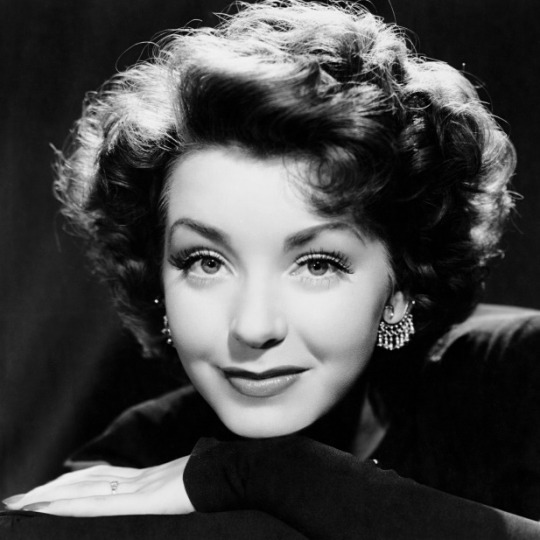
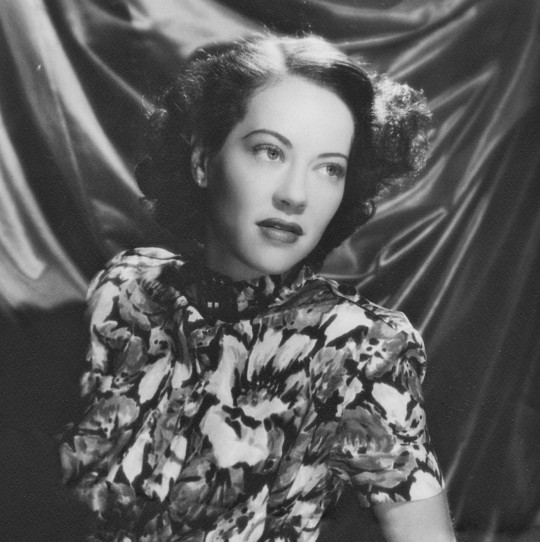
Propaganda
Marsha Hunt (The Human Comedy, College Holiday, These Glamour Girls)—To be honest, I haven't had the chance to see a lot of her films, but she was an amazing person. A beautiful, popular actress during the 30s and 40s, Marsha was unfairly blacklisted during the Red Scare for speaking out against McCarthyism. Instead of letting that stop her, she focused her efforts on humanitarian work for causes such as world hunger, poverty, and pollution. She was also a support of same-sex marriage. Side note to any fellow fashion history nerds, she wrote a book on 30s-40s fashion. She stayed true to her beliefs through the years, and passed away at the age of 104 in 2022.
Fredi Washington (Imitation of Life, The Emperor Jones)—She was a beautiful woman whose movie career was struck short because she refused to pass as white, but she did get to star with the greats like Cab Calloway, Hattie McDaniel, Paul Robeson, Duke Ellington, Louise Beavers, etc. Being a person of moral and conviction is hot. Also, she knew ballet and was a beautiful dancer in general.
This is round 2 of the tournament. All other polls in this bracket can be found here. Please reblog with further support of your beloved hot sexy vintage woman.
[additional propaganda submitted under the cut.]
Marsha Hunt:
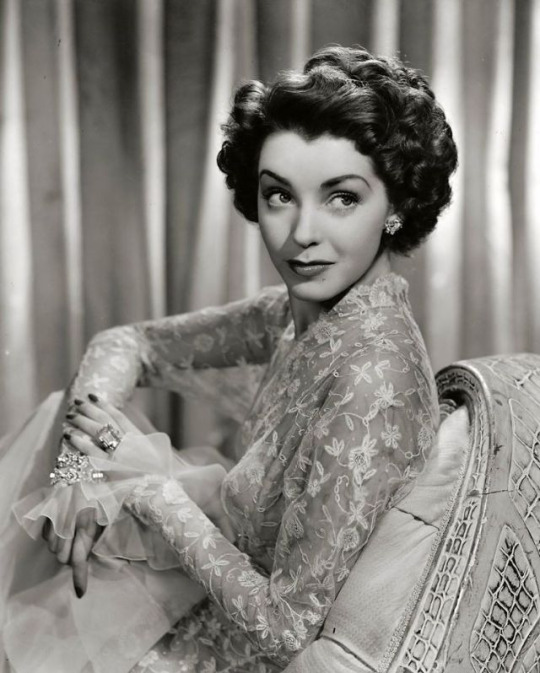
Marsha Hunt first signed with Paramount in 1935 at the age of seventeen, kicking off a prolific career as a beloved Hollywood star and fashion model. Her distinctive profile and facial structure earned her the nickname “Curly Lips”: “Besides a rounded forehead, almost no nose bridge, and a nose that curved upwards, even my lips curled up at the corners. Ronald Coleman and his wife Benita told me they used to describe me to each other as ‘Curly Lips.’ I decided that anything that helped two people I adored take notice of me would no longer keep me awake at nights.” (The Way We Wore, p.95) Marsha appeared in about seventy films over almost eighty years, including Hollywood Boulevard, College Holiday, Easy Living, These Glamour Girls, Irene, Pride and Prejudice, Blossoms in the Dust, Thousands Cheer, The Human Comedy, and many more. She was blacklisted during the McCarthy era for publicly defending Hollywood from the accusations of the House Committee on Un-American Activities, alongside Lucille Ball, Humphrey Bogart, Deanna Durbin, Henry Fonda, Judy Garland, Frank Sinatra, and many other members of the Hollywood community.
Fredi Washington propaganda:
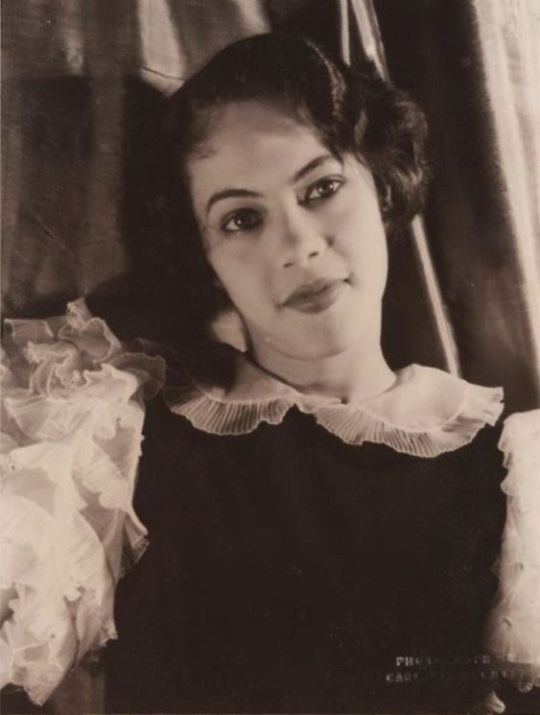
Short Hollywood career for being too light-skinned to play maid roles, but too brown to be cast opposite a white man in the time. Civil Rights activist. Worked with Paul Robeson to create the Negro Actors Guild. Heavy work in theatre and the NAACP.
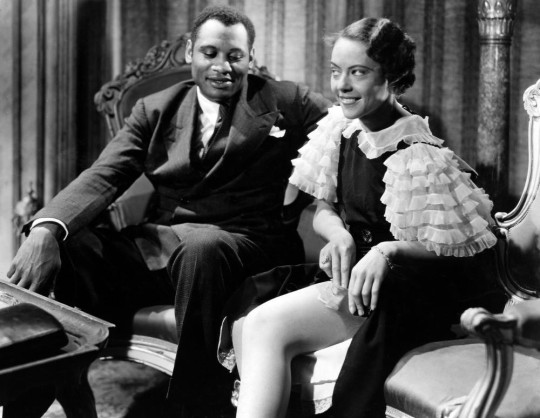
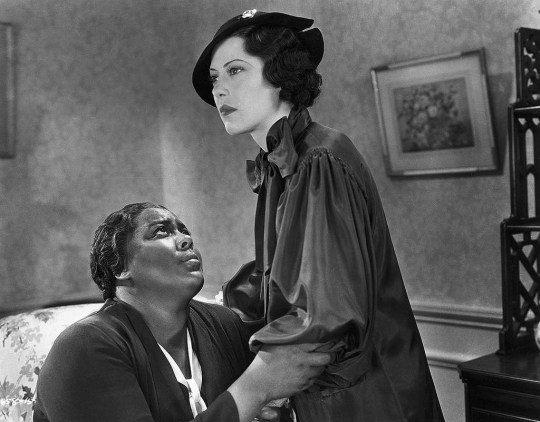
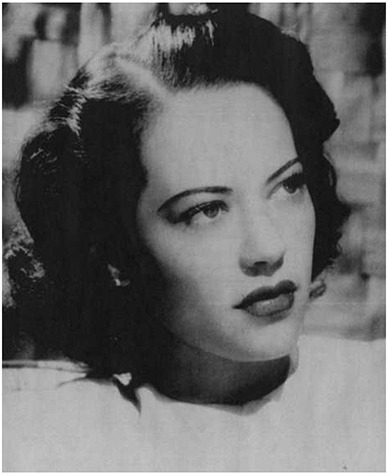
84 notes
·
View notes
Text
Inspired by @muaka-safari's analysis of Vakama's relation to anger.
My hypothesis: Nokama, while stressed too about fulfilling her duty, has a different core issue in relation to it. Rather than the aspect of fulfilling a command by her leader, she constantly thinks of her behavior. For her, her conduct is part of her duty.
She has to act a certain way. She has to be in a certain way, or she is failing.
Which makes sense. She is a teacher, after all. She has to be a role model for her students. But what if it went deeper than that?
Nokama puts a lot of stock in order, reflecting her Metru and the vahki assigned to this metru: The bordakh. These vahki carry staffs of loyalty that instill uncompromising desire for social order.
Official material depicting in-universe information describes Ga-Metru in a very flattering light. It's the city's spiritual center and said to be favored by Mata Nui himself.
None of the Ga-Metru hold any jobs in terms of repair, manifacturing, or engineering. Matoran from other Metru do these jobs for them. Ga-Metru is privileged.
But like with everything in Metru Nui, this is only one side. The side most would think about first, whether as good or bad. The other one of this reputation means that all ga-matoran must be peaceful, right? They are orderly, spiritual, wise, etc. Otherwise Mata Nui wouldn't love their Metru as much.
Ooof. Of course, some would feel arrogant about that. But mostly, that'd be a lot of pressure. If you're the favorite of the city's most important person - your God - then you have to show it that you're showing reasons why you're the favorite? And keep it up all the time?
I doubt all ga-matoran took it that deeply to heart, but some of them likely did. They have to act responsibly. Among them is Nokama.
Remember what I said farther up in the post that she thinks she has to act in and be a certain way? We see it regularly.
Nokama in the movie and in the movie's novelization [[gave the Po-Matoran a sharp look. “Your negativity pollutes this sanctuary, builder.”]]
She snaps at Matau and tells him they have to take their duties as toa seriously.
She scolds herself after she argues with Vakama in the Archives. Never mind that it's a genuinely stressful situation and the others barely ever consider that they themselves need to make an effort to argue less. In my reading it felt like she deemed it more a moral failing of hers rather than a practical concern?
She tries to mentor Vakama and steer him into the direction of being leader. We're never given a concrete in-universe reason. (Out-of-universe, the writers clearly pushed the fire toa into the leader role.) But maybe Nokama saw it as her duty and responsibility to keep teaching in the one way she could, if she wouldn't teach matoran anymore? (Not to mention that's the only connection to her old life that she still has.)
She asserts that she's a toa in the comics when Nidhiki mocks her, Matau, and Vakama to be overgrown matoran.
Feeling rejected by the Great Temple when she enters it as Toa Hordika deals a heavy blow to her. She feels impure, as if she's longer fit as she is to serve the Great Spirit in his regard.
She has a rage breakdown, yelling that "She's still a toa!"
On the other end, Nokama notably has moments as Toa Hordika, while she's trying to calm down and find stability with Gaaki's help, where she doesn't seem to care about her previous high standards anymore. She feels tempted to give into her hordika side and is much more reckless, less thinking about how she acts as a toa.
She also makes an effective and chaotic team with Matau. As @crystaltoa pointed it out, they both are now "hold my beer" types, while they act about each other as "I can't take you anywhere with me!"
As if the transformation into a hordika beast, which looks nothing like a toa's supposed to, has freed Nokama from a great weight.
(@crystaltoa She might still think back on the Great Temple, however, and wonder if the stain on her from being transformed into a Toa Hordika remains.)
79 notes
·
View notes
Text
The Camp Girls: A Pedestal of Morality
Warning: This post contains the exploration of period-typical attitudes that can border on sexism, as well as spoilers for RDR2.
RDR2 is a game, that for the most part, values its historical setting in the sense that the setting actually matters to the story and the characters. The characters are not only reacting to the historical attitudes, but they are a part of it as well. Of course, Red Dead 2 is a bit more tame in some aspects of 1899 America, especially compared to RDR1, which makes SURE to remind you of the prejudices of 1911 America.
For this post, however, I want to talk about more domestic attitudes that were a part of the gang- to be more specific, I want to talk about the Cult of Domesticity or the Cult of Womanhood and how that idea relates back to Dutch's gang.
The Cult of Domesticity or the Cult of Womanhood was an idea that was popularized in the 19th century by the Victorian middle class that spread to America and explained, encouraged, and pushed specific gender roles and cultural ideas to the masses. As the name probably explained, this idea was pushed onto mainly women. There were two main aspects of it- the private sphere and the harbinger of morality.
The Private Sphere had everything to do with a woman's role in the house- hence the private sphere. The Private Sphere had everything to do with housekeeping, childrearing, being a good host, and overall creating a safe haven for the men in their lives. While the men had to deal with the public sphere, which was business, work, protection, etc., women took charge of the private sphere.
The morality aspect of it is about how women were expected to bring morals to the house. Men were expected to hold women in high regard and women provided sectors of emotional safety and humanity to men, as well as providing children with a moral code and instill them with manners.
This excerpt from usahistory.org explains it better than I can: "A TRUE MAN was concerned about success and moving up the social ladder. He was aggressive, competitive, and rational, and channeled all of his time and energy into his work. A TRUE WOMAN, on the other hand, was virtuous. Her four chief characteristics were piety, purity, submissiveness, and domesticity. She was the great civilizer who created order in the home in return for her husband's protection, financial security, and social status."
Of course, men perpetuated this idea, but a lot of women also supported this model of living, believing it to be the way it should be. Writers like Sarah Hale published magazines that explained what should be the behaviors of a proper lady. Women's magazines like Godey's Lady's Book sold 150,000 copies in a year. Catherine Beecher was an advocate for bringing the women's sphere to the classroom in order to instill a proper moral code into their students.
But why does this matter? I mean, the camp girls aren't exactly the moral standard of womanhood in the 1800s. Mary Beth is a thief. Karen is a scam artist. Tilly ran with gangs and murdered a man. Abigail was an ex-prostitute and a thief. Grimshaw was probably all of those things combined at one point or another.
Well, you could argue that because they live unconventional lives, morality was a bit greyer, but overall, the women of the camp still, in one way or another, adhered to this idea regarding the cult of domesticity.
The private sphere and the public sphere definitely existed in the gang, which is why there were so few missions with the camp girls. The girls were mostly resigned to the "house" or to the camp. They worked to make the camp a livable place for the men who gave them protection and financial security.
It is a common sight seeing Tilly washing clothes, or Mary Beth and Karen sewing something, or Abigail wiping down tables, same as Grimshaw. There are all very domestic roles- while in camp, the women are almost always working, except for Molly and Sadie, while the men are almost always lounging around- typical of the 1800s home.
The girls mention this as well through interactions.
Tilly mentions how much she hates washing and mending the men's laundry and how she wishes the men could do their own laundry.
Karen tells Grimshaw to shut up because Grimshaw isn't the one feeding her, so she won't take her bullying.
Abigail screams how the men aren't being men because they couldn't protect Jack from being kidnapped. She also critiques Dutch's philosophy because it doesn't feed them.
Mary Beth is yelled at for not working in the camp as she should by Grimshaw.
There are more examples of this, but we will be here all day if I have to go through all of them.
Grimshaw is kinda obvious. The girls have to work to please this fierce dragon, who is always working. Arthur mentions in the entering Valentine mission whether or not Miss Grimshaw could spare them, showing how the general priority of the girls in the camp is domestic work.
We also know that the girls doing men's work is generally rare due to this one interaction with Karen- "Not so long ago, I was a damsel in distress. Now they got me protecting the men."
The now implies that this isn't a normal routine and that protecting the men is not something that she usually has to do.
So that was just the domestic aspect of it, but there is also the morality part of it.
I think the biggest representation of this is the mini-therapy sessions with the girls, telling you to be better and offering advice to what might make Arthur a better man, with Arthur being more comfortable opening up to them BECAUSE they are women and because he expects their morality to keep them from using such information to hurt him, which is something he has to be careful with when it comes to the men in the camp. But there are more representations of this.
There is Abigail begging John to put his old ways behind and to be a better man, a real man. There is Hosea speaking about Bessie, talking about how while she is in heaven, he will be looking up at her from hell, implying that Bessie had the moral compass that Hosea did not (the interaction also probably destroys the fandom's interpretation of Bessie and Annabelle being very active members in the gang, when that is most likely not the case). Even Mary, though not a camp girl, still acts like a moral harbinger to Arthur, telling him to be a better man and stop being an outlaw.
John has a line in Undead Nightmare that is a complete reference to this thought process: "Abigail, teach the boy right from wrong."
So what am I getting at here? What is the point of all of this? It seems like I am just going off on old historical attitudes, but what does this ultimately mean?
What it means is that Dutch allows women into the gang in order to dignify his ambitions.
Dutch likes to differentiate himself from the other gangs that still roamed in America. While the other gangs stole and robbed for fortune, Dutch robbed for his romantic ideals and to be a western Robinhood. While the other gangs had many men, Dutch had a few strong men whom he knew personally and trusted. While the other gangs targeted innocents, Dutch's gang targeted only those whom they saw as committing the sin of avarice.
Dutch wants to see himself as morally superior to other gangs and other criminals, so what better way to do it than allowing women into the gang? Women who suffered great misfortune in their life and had no other place to go. With women being a pedestal of morality back in that time, Dutch having women in his camp as a way to differentiate himself from other gangs- a way to show people that he is better than them.
Every other gang encountered in the game has no women.
"We are what we are. A bunch of desperados on the run. But with the women, a change of clothes, we're a choir, or a gang of pilgrims, or something."
See, that one line from Guarma from Dutch basically explains the whole concept. Without the women, they are desperate criminals, clinging onto nothing, but with the women, they become virtuous by association. But someone like Micah doesn't care about this virtue or morality because he explains that he would rather just be a criminal and run with a few strong men, which is what he does in the end.
The concept of the private sphere and the public sphere of the camp can also show that Dutch wants to dignify his gang by giving it a sense of civilization to make it truly like a home or family.
What an interesting idea, don't you think?
#rdr2#red dead redemption 2#arthur morgan#john marston#dutch van der linde#tilly jackson#karen jones#mary beth gaskill#susan grimshaw#historical#character analysis#story analysis#guys i think i cooked with this one
65 notes
·
View notes
Text
The Most Common Types of Fairy Godmother in "Cinderella" Adaptations
Since @ariel-seagull-wings and I have already posted about the different portrayals of Cinderella and her prince, I thought it might be nice to look at the different portrayals of the other characters too.
Each portrayal of the Fairy Godmother is unique, but patterns do emerge across the different adaptations. I've found that the different portrayals of the character can be divided into five categories, with some portrayals combining two of them together.
The Regal, Ethereal Lady
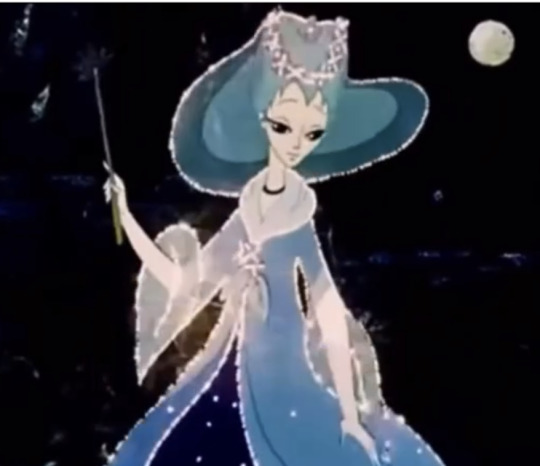
This beautiful, elegant creature is emphatically a fairy godmother, not a godmother who happens to be a fairy. She wears a gorgeous flowing gown, not of any earthly fashion, and though her age is indeterminate, she seems youthful yet wise. Her demeanor is kind and gentle, yet serious and stately, though she might have a slight playful streak. She takes on the role of the story’s moral authority as well, usually emphasizing that she comes to reward Cinderella for her goodness. Often, she first appears disguised as an old beggar woman to test the respective virtue of Cinderella and her stepfamily, and Cinderella earns her good will by giving her bread while the stepfamily scorns her. Sometimes she has attendant fairies or other magic-users to assist her as well: she might even be portrayed as the Fairy Queen, who lives in the forest like Shakespeare’s Titania and has countless fairies, elves, and sprites as her command. Fairy Godmothers of this type are most often seen in earlier adaptations: they include “La Fée” in Massenet’s opera Cendrillon, the Fairy Godmother in Prokofiev’s ballet, Inez Marcel in the 1914 silent film, Varvara Myasnikova in the 1947 Russian film, Celeste Holm in the 1965 version of Rodgers and Hammerstein’s musical, and the animated Fairy Godmothers both in the 1935 Betty Boop cartoon Poor Cinderella and in the 1979 Russian animated short.
The Grandmother Figure
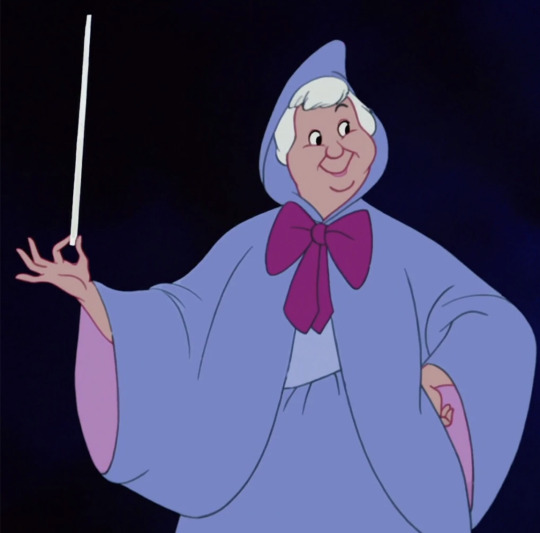
This Fairy Godmother is a little old woman, and she’s very human as fairies go. She might not be regal, or beautiful, but she radiates a sense of warmth and comfort like all the best grandmothers do. Her sweetness, gentleness, and maternal affection are just what Cinderella needs in her despair, and sometimes she can be adorably absentminded – forgetting where she put her wand, almost sending Cinderella off to the ball in her rags, etc. – which adds gentle comic relief to the story. Yet she also conveys the wisdom that comes with age, and her magic is just as powerful as that of any younger, more glittering fairy. The quintessential Fairy Godmother of this type is the one voiced by Verna Felton in Disney’s classic 1950 animated film. Several other animated versions aimed at children feature grandmotherly Godmothers too, like the versions from Jetlag Productions and Burbank Animation Studios. In the 1995 musical A Tale of Cinderella, “La Stella” is Cinderella’s actual grandmother, whose magic sadly couldn’t save her daughter’s life, but can save her granddaughter’s future. Jean Stapleton’s Fairy Godmother in the 1985 Faerie Tale Theatre adaptation is also very grandmotherly, although she has additional glamour and a sense of humor that bring her closer to the next type of Fairy Godmother on the list (see below).
The Sassy Glamour Queen
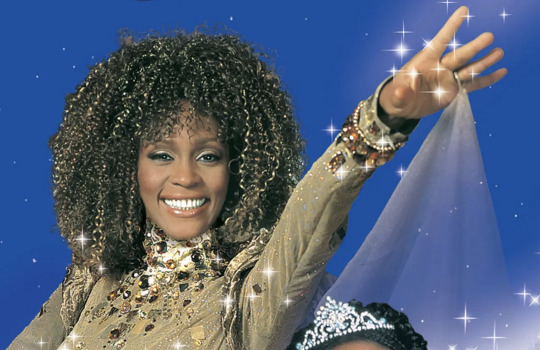
She’s beautiful, she’s elegant, she’s as smart as a whip, and she knows it! This is a more modern, lighthearted twist on the Regal, Ethereal Lady. The sparkle of the gorgeous gown she wears is matched only by the sparkle of her playful wit, and her confidence in herself is surpassed only by her confidence in Cinderella. Her sense of humor lifts Cinderella’s spirit, while her intelligence, poise, and indefatigable spirit make her a strong role model for the girl. Yet though kind and caring, this Godmother tends to be a bit more standoffish than others – though not in a bad way. She urges Cinderella to solve her own problems, not just rely on her, and to have courage and faith in herself against all odds. The most famous Godmother of this type is probably Whitney Houston in the 1997 version of Rodgers and Hammerstein’s musical. But Edie Adams’ elegant and mischievous Godmother in the original 1957 Rodgers and Hammerstein telecast is a good example too: although since she spends most of the story masquerading as a human, she combines this portrayal with another type (see the bottom of the list). Meanwhile, Jean Stapleton’s Faerie Tale Theatre Godmother has the elegance and humor of this type, but as an elderly woman, she combines it with the Grandmother Figure. Last, but not least, is Billy Porter’s nonbinary “Fab G.” in the 2021 Sony/Amazon musical.
The Eccentric Mage
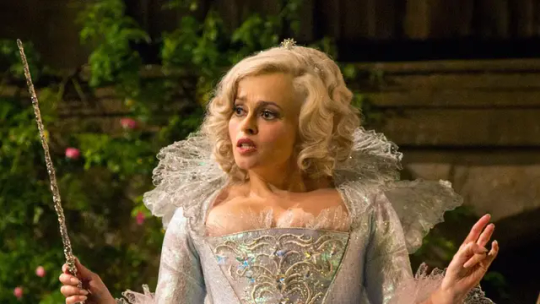
This funny and kooky Godmother is one of those beings who combine magic with just a little insanity. Her mind is like her powers: not entirely of this earth. Like the Regal, Ethereal Lady, she tends to disguise herself as a poor, ragged old woman to test Cinderella’s virtue and befriend her before the ball – but she takes it a step further and masquerades as a crazy homeless woman, who spouts odd remarks and whom anyone less kind than Cinderella might try to avoid. Yet even when not in disguise, she’s a bit of a ditzy oddball, who sometimes fumbles her spells once or twice before she gets them right: e.g. dressing Cinderella in the wrong type of clothing at first, or turning the pumpkin into the wrong item, or accidentally making it grow to a gigantic, greenhouse-shattering size before it becomes a coach. Fairy Godmothers of this type include Helena Bonham Carter in Disney’s 2015 live action film, “Crazy Marie” in the 2013 Broadway version of Rodgers and Hammerstein’s musical, Joyce Gordon in the Muppets’ Hey, Cinderella! and Estelle Winwood as Mrs. Toquet in The Glass Slipper. Although since Mrs. Toquet never takes off her “crazy poor woman” disguise, she combines this variant with another one: The Godmother Who Happens to Be a Fairy (see below).
The Godmother Who Happens to Be a Fairy
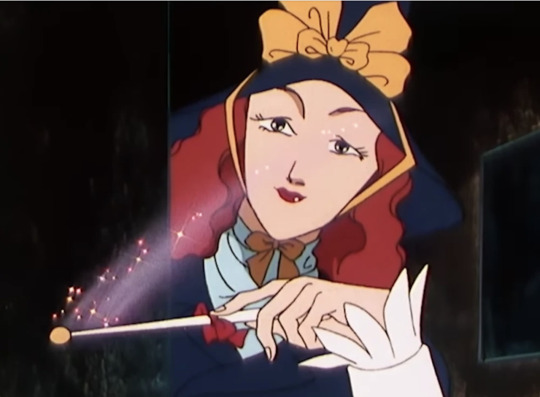
This is the most human portrayal of the Fairy Godmother: an ordinary woman who just happens to have magical powers, which she hides until they’re needed. Cinderella typically befriends her long before the ball, sometimes knowing her from childhood. She might be a household servant, or a kindly neighbor, or a traveling portrait painter, but whoever she is, you wouldn’t guess that she’s a fairy. She might even pretend not to believe in magic. She might also be Cinderella’s literal godmother – a close friend of her late mother’s, or even a relative. But no matter who she is, the friendship and the simple, human advice she gives to Cinderella (e.g. never to lose hope, or not to be afraid to love the Prince) are just as valuable as her spells. Edie Adams’ mischievous Godmother combines this characterization with the Sassy Glamour Queen in the 1957 Rodgers and Hammerstein musical, Estelle Winwood’s Mrs. Toquet in The Glass Slipper combines it with the Eccentric Mage, and Annette Crosbie’s sensible and ladylike yet quirky Godmother in The Slipper and the Rose combines it slightly with the Eccentric Mage too. Other examples are the artist Paulette in the anime series Cinderella Monogatari, the cook Mandy in the original novel of Ella Enchanted (who is also the Grandmother Figure), and the pasta-stirring grandmother La Stella in the musical A Tale of Cinderella (ditto).
@ariel-seagull-wings, @thealmightyemprex, @adarkrainbow, @themousefromfantasyland, @faintingheroine, @angelixgutz, @softlytowardthesun, @amalthea9
#cinderella#fairy tale#fairy godmother#adaptations#characterization#comparison#character types#patterns#fictional characters
68 notes
·
View notes
Text
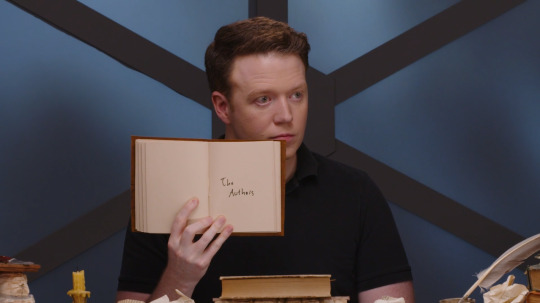
brennan's choice to bring the authors into neverafter is an interesting move -- on a basic, storytelling level, it adds another dimension to the cosmic horror elements already in place, which is useful primarily because brennan likes cosmic horror and tends to rely on it, so we have a lot of basis for comparison going forward. on another level, and one that i find more fruitful largely because it brings something very new and sharp to the story, is that we now have textual acknowledgement that these tales were recorded or written with authorial intent. we've yet to see if brennan will be invoking basile, perrault, the grimms, etc., but they are present in the text now and can be considered as much a part of the neverafter story as the characters themselves. all that said, i want to start thinking about what that authorial intent was, and how it has developed in our retelling.
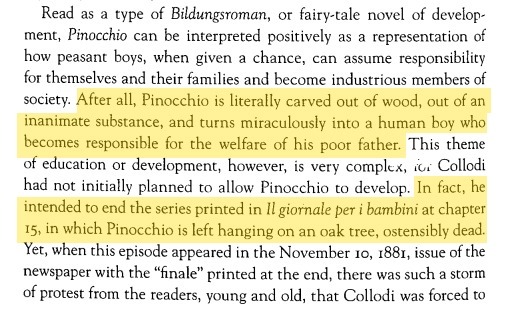
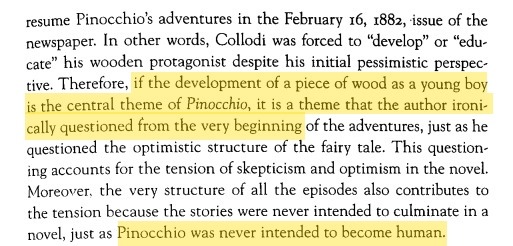

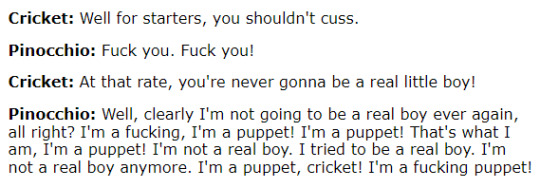


much of the horror in neverafter is centered on pinocchio -- he is our most direct link to the stepmother, an entity that consumes other characters (notably, her own children and red's grandmother, and presumably snow white's stepmother) in order to achieve the same power as the authors. so we can demonstrate a link between authorial intent and parental authority, and we can assume that neverafter is interested in the intersections between parent and author as roles occupied in order to control characters or stories and their eventual outcome.
as a character, pinocchio is pinocchio, but acting on an archetypal level he is also the child: his original tale was inspired by and modeled after the "jack" tales, after all. there are two primary roles that the child can inhabit in fairy tales. the good child is rewarded, and the bad child is punished. as a character, pinocchio confuses these roles, and we can see why -- the original intent of his tale was not to reward him, and he was never supposed to become "good" and therefore "real." he was meant to die as a puppet. in nva4, pinocchio dies as a puppet. the dissonance of collodi's tale is recognized in the stepmother's promise to pinocchio, stating that she can make him real when it is impossible for him to be good.
in this, the stepmother takes on the role of both the blue fairy and geppetto in pinocchio's story. but those roles, as written by collodi, were never meant to be gentle -- the parent is not meant to be a source of care, or protection.


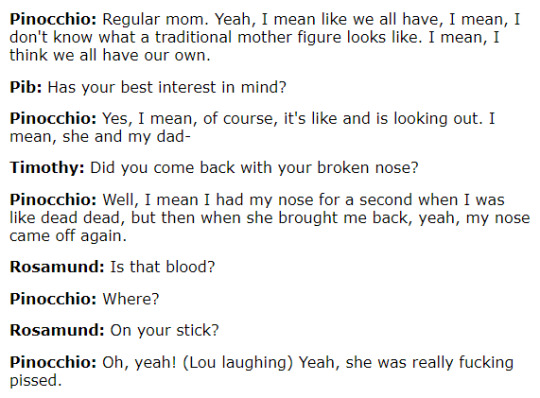

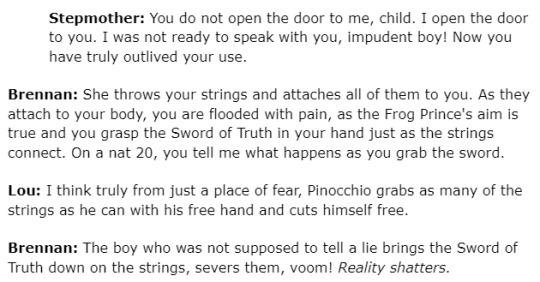
brennan is not collodi -- his concerns are less material, less related to the issues of class and poverty and survival present in collodi's tale -- but, consciously or not, he has drawn on the way the original story primes pinocchio to accept violence from parental figures and to understand their anger towards him as a function of a properly told story. in this instance, with the agency of a player behind him, he is able to develop new aims and defy his parental authority -- and we can see that the world of neverafter is unable to function properly when pinocchio cuts his strings and rejects his role as a servant to his father's wellbeing.
so, again, we see the stepmother taking on geppetto's role -- but what about the fairy? what about the fact that our pinocchio was introduced after the end of his tale, and what about the role the fairy has played until now? she was the one that killed him the first time, not the stepmother; she was the orchestrator of his moral adventure and, as neverafter so succinctly put it, the figure in control of whether or not pinocchio is "real."
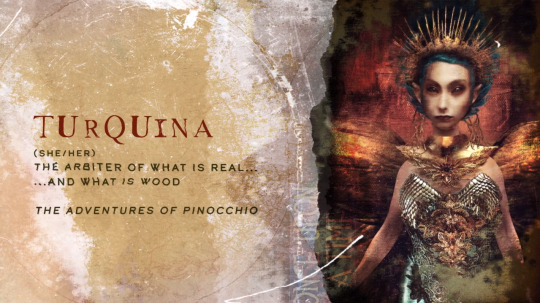



there has been a clear schism between the fairies and the stepmother in neverafter -- we can see that in the exchange between the stepmother and cinderella's fairy godmother, particularly the claim that "magic was never [the stepmother's], magic is [the fairies']!" but what the fairies seem to resent is the stepmother's authorial role, her ability to take stories and reshape them, rather than the character role she plays within the stories themselves.
additionally, there have been a lot of hints that this was a "good" world, and that there is something to return to, if the stories can be restored to their "real" versions. but by breaking down the original pinocchio tale through the lens of what has occurred in the neverafter, we can see that this corrupted version is not really so different -- the macro effect, the authorial intent through first the stepmother and then brennan himself, has clearly changed, but the effect on pinocchio as character and the child as archetype remains.
i take the introduction of the authors into the tale and the link drawn between them and the stepmother to be our first significant sign that things will not be able to return to the happily ever after -- our first real critique of the conditions of thought created and reinforced within fairy tales, and hopefully, a sign that brennan is questioning not the optimism of the fairy tale but the goals fairy tales set out to achieve.
#ids in alt text#tumblr ate like three paragraphs of this between drafts btw so idk if my argument came thru on the retype#but im getting this out now before ep9 either contradicts this or says it for me#this is my ep8 post disguised as a pinocchio deep dive btw<3#dimension 20#neverafter
551 notes
·
View notes
Text
💙 About Jellal's Father ❤️
After the Jellal's past revelation, I have being thinking some theories/headcanons about his father, childhood & etc so, I made this thread:
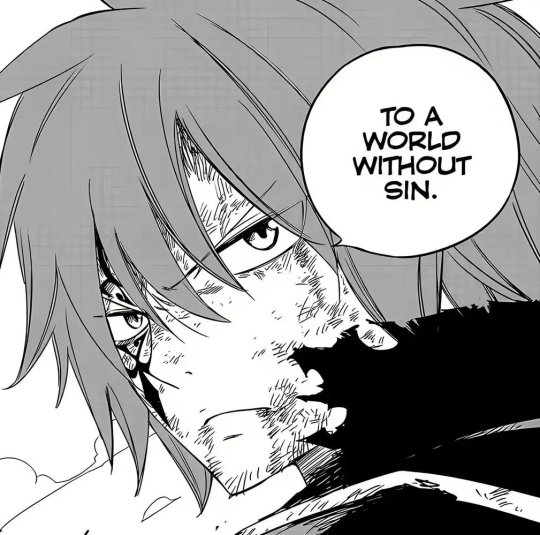
Seeing how sad they were at his tomb, Im totally sure he was a great father & they were a lovely family, but seeing how harsh Jellal is with himself, I think his dad was a serious, very strict man with high moral values & high discipline, probably religious too.

His dad probably was a well respected but solitary man & only showed his soft face to his family & Jellal learned to be a gentleman because he saw how his dad treated his mom, his dad also was a "protector type" that's why Jellal wanted to become the new protector of the family and a protector to his friends ans people in general.

I think they raised Jellal to meditated of every one of his actions and steps in life, in this panel you can see how his mom guides him with questions, but allows him to think by himself and find a solution/path to fullfill his wishes by himself. That' why he has leadership qualities.

My headcanon is that his dad came from a distant country with quite a different culture and probably Jellal's tattoo is part of a tradition of his dad's culture, that's why not even his mom & neither anyone on his town had a face tattoo besides Jellal.

Other headcanon is that Jellal's dad had a tattoo in his face, a mark that it was costumary to pass to their children, some villagers were scare of him for that, that's why even if they respected him, they didnt like to be very close to him.
There were rumors that it was a "curse mark". Jellal's mom worried about those rumors because she didnt want her husband to feel bad about them, but when he heard them, he just laughed and said: "Ignorance is the real curse, this tattoo is a legacy of pride and love of who we are and who we love"
His father didnt talk a lot about his past, but by breves conversations Jellal secretly overheard from his parents, the country were his dad came from suffered from a magic related "disaster" and wiped out almost the entirely of their people.
Jellal loved his dad's tattoo, he always wanted one bc he wanted to be as cool as his dad, it wasnt painful either, it was made with magic, a really ancient ritual magic only know for the ones like his father.
I think his father knew how to use magic & was a skillful mage (even so he probably prefered to keep that as a secret), that's why Jellal first thought after his dead was that; in order to protect his mom, he had to learn magic & go to a magic school, because his role model was his dad.
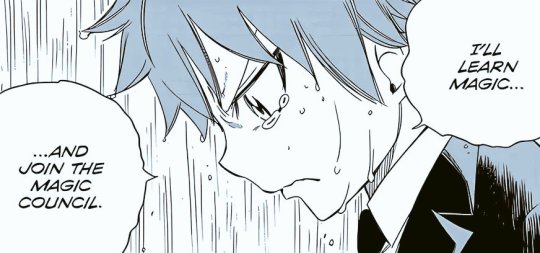
I have this other headcanon that the slavers didnt went for that village before because some years before they tried, but were secretly stopped by Jellal's dad, but then he died and they came again.
His dad had some ancient magic books that Jellal wanted to read as a kid, but he didnt understand the language, later, as the "fake Sieg" he learned it, that's why as member of the council he collected & read a lot of books, unconsciously, he was trying to find those books.
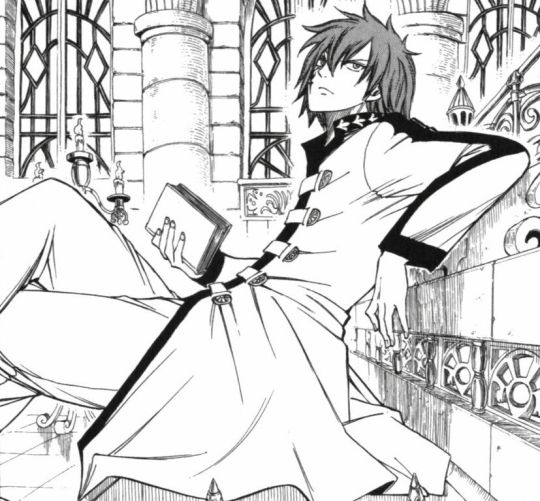
Could the books still exist? Maybe. His father have them in a secret place on his house, my headcanon is that Jellal will find them when he finally decides to go again to that devasted village alongside with Erza, of course.
He wants to go & make a tomb for his mom alongside the one of his father, but he really dont want to go alone, so, Erza will go with him, bc she wants to supports Jellal & she wants to give her respects to the parents of the gentle & amazing man she loves so much.
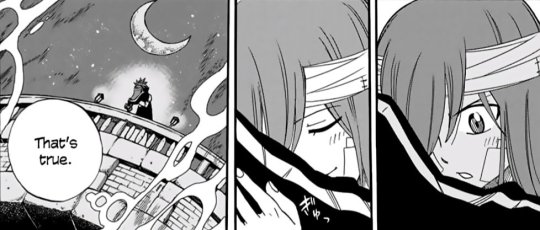
Jellal and Erza also want to ask them for their blessing for their incoming marriage and then later, for blessings for their child(ren). 💙❤️💜
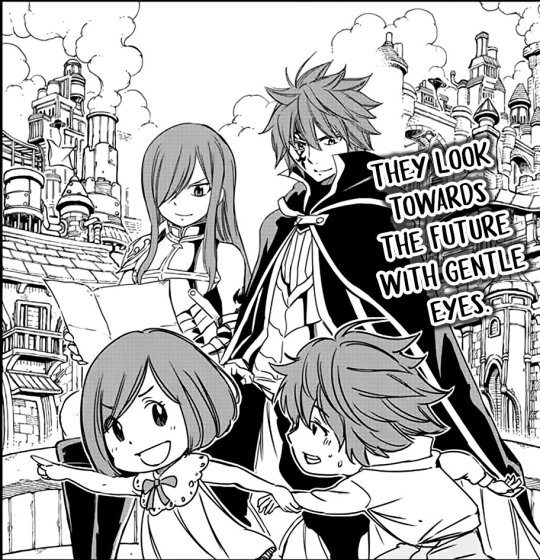
💙 F I N ❤️
.
#jerza#fairy tail#jellal fernandes#erza scarlet#ft100yq#love#justin scarlet fernandes#jellal x erza#erza x jellal#headcanon
83 notes
·
View notes
Note
could you make a reading on "what your stray kids bias says about you?", if it's not too much to ask? 🥺 your ateez one was rly accurate!!!
What Does Your Bias In Stray Kids Say About You
Bangchan
I know a lot wants me to say that "it's because you have daddy issues" but hey, yes and no? some of you just went through very poor interactions when children and lack of something in that aspect which lead to poverty in love and inner self
also you guys are like him, workaholics and always trying hard to prove your point on things, projecting a lot on Chan like a role model
Minho
most of you like to travel, like nature, the beauty of the landscapes. you always try to reach accomplishment in everything you do, because Minho is like a motivation that you see yourself in, someone that represents hard work, something you want to reach
also a lot of you is just anxious kids, some of you struggle so much with mental health, depression, insomias, anxiety disorders. you find Minho reliable and confronting during those times
Changbin
He represents everything for you, not only because he can be an ideal self and a comforting figure but because most o you go a lot through inner conflicts, you doubt yourself, you sometimes hate yourself and you find that Changbin helps you learn about loving now self and being a better person
Hyunjin
You like him because he is a very family guy and he represents the morals and the values that you hold very dear as well. mos to you are family-driven people, that want to have kids, marry, etc. also some of you might be religious or believers
some of you have a very strong manifestation and feel somehow connected to Hyunjin (delulu alert)
Also just like him, you have a head on the clouds, you are easily distracted by things, you forget things easily and you lack direction. if you don't have people nagging you or pushing you you are unable to do things by yourself
a lot of you are also very undependable just like him and enjoy your own freedom while others are social butterflies and just match his social skills and energy
Han
Okay first thing is, most of you are sexy people, very feminine people
other than that, you mirror Han in a way, of being very co-dependable on people you love and care, as like without them you feel lost and without direction. you need them to live your life because your head is like Han's just free of issues and chaotic
also it feels like many of you avoid taking decisions, and avoid things that hurt, like him you withdrawal easily from things an that because you have a way too ùany difficulties on making decisions, you prefer others to do it for yourself
also a lot of you are also very loud people sine you mirror than a lot, you like talking and laughing loudly, you like showing happiness and jo and also are helpless romantics
Felix
Okay so you guys are also big delulus, and mostly you are helpless romantics and Felix's idol image represents everything you are seeking in a partner, someone nice and gentle, soft, deep voice that can take care of you. that's what you want, what you like. you have very high standards of love
but also Felix represents everything you have wished to be, someone that everyone likes, someone that is appreciated and talented. he helps you self develop in your own way and because of that you feel connected to him
Seungmin
You like him because just like Seungmin you feel like a cast ou in life. most of you have a lot of issues with your emotions, you represent them a lot and often feel disconnected from them; Seungmin is a way of comfort like a puppy that you need whenever your emotions don't make sense. a lot of trauma happened to you as well
some of you have dealt with very problematic and toxic relationships, either love, friendship, or family, and again, for you Seung-min is a reminder that you aren't alone int his world
Jeongin:
You don't really know why you are attracted to Jeongin, there isn't an explanation for it either, because in a way you feel it's wrong to be attracted to him (especially if you are older than him) and he also makes you question all of your values. that because most of you are in total disharmony between what you want and what you have learned to be wanting. he represents the misalignment of values that you fight against
#Stray Kids#Stray Kids astrology#Stray Kids headcanons#Stray Kidsimagines#Stray Kids imagines#Stray Kids scenarios#Stray Kids reactions
168 notes
·
View notes
Note
It's so evident that Disney is trying to girl-bossify their princesses, which is why the remakes's focus has shifted from the beautiful and timeless values and themes of love, selflessness, sacrifice, faith, kindness, trust, etc. to how they have actually been badass this whole time and how much stuff they can get done on their own and that actually don't need ANY man because that will automatically make them weak, stupid and useless (and they call people who don't think like them misogynistic lol), but that was never the point of their movies. I partly blame the ignorant fools that lambasted the original movies and characters for not being "progressive" enough or whatever nonsensical argument they came up with and accusing them of being bad role models when they clearly aren't. What Disney is doing is some sort of "damage control" and "apology" for not depicting how kickass a young woman can be or whatever. It saddens me that this is where Disney is at. They discard timeless and beautiful storytelling and themes for modern, performative ideologies.
Correct. I’ve said this somewhere else, too, I think, but they should never have tried to “improve” or change who their characters are. They should have simply doubled down.
That’s what they did with Cinderella 2015. Everyone criticizes Cinderella for not standing up to the evil stepfamily and rescuing herself; proving that they never understood that Cinderella’s superpower was her kindness. So in 2015, Disney said, “no, look, we’ll tell the story again, and this time pay attention to the kindness.”
They didn’t give her a rapier wit to put her stepmother in her place.
They didn’t add in a legal contract that forces Cinderella to stay so everyone knows she’d “leave if she could.”
They didn’t even make Cinderella fight her way out of her situation, in any way. Or convince the Prince to find her.
They just doubled down on the kindness and showed off, even more carefully, who Cinderella is and always was, regardless of whether or not her critics saw it.
But the other Princesses? They re-wrote. Belle’s no longer self-sacrificial: she “will escape!” her oath to take her father’s place. Jasmine’s no longer trusting and longing to be free: she wants to be Sultan. Ariel’s no longer doing everything out of love and faith: she’s doing it all for herself, so she can be independent.
You’re right, it’s all Disney holding up their hands and saying, “sorry sorry, we got it wrong the first time, what was it you wanted again?” And in 5 years, when the values of our culture shift again (like they always do, because they’re never rooted in a timeless moral standard, just whatever we want in the moment) the remakes will be considered inadequate. Their Princesses will be criticized, and round and round we go.
People are still criticizing Cinderella 2015 for the same core reasons they never liked any version of Cinderella (except for “Ever After” 🙄). Disney needs to remember: that just doesn’t matter. Let them be wrong. Truth will always stand the test of time. Pandering never does.
#Cinderella 2015#Cinderella#the little mermaid#live action little mermaid#Aladdin#live action remakes#beauty and the beast#Belle
72 notes
·
View notes
Note
My honest opinion on Evillious Chronicles...I believe the series is truly deep and beautifully written, but there are some personal issues I have with it.
I don't really care about the point and message of the Evillious Chronicle series nor the concept of "morally gray", I only believe in good, evil and the consequences of our own actions. MOTHY has made an amazing story that we all still enjoy ~16 years later, but I have to disagree with his philosophy and outlook on the world, ours differ greatly– Though he has some valid points, it's rather naïve IMO... and while it's compelling storywise and from an emotional perspective, it isn't as much realistically or from a political/social standpoint of right and wrong.
Morality never mattered in the first place, because evil always succeeds if it has enough power or deems its deeds necessary for a "greater benefit"... Good and evil are both necessary forces that exist to maintain the balance of this universe, just as our fate dictates.
Personally, I'm starting to see far more evil and corruption than light and hope in today's politics and throughout our society's history, so I only get pissed the fuck off whenever I see a political debate between self-righteous snowflakes on Twitter or Reddit (Especially the Character rant mfs), with each side claiming that they're right and the other is evil.
Even though morality is literally IRRELEVANT in politics, it has always been about interests and agendas in the end. If anything, there are only two lesser and greater evils. 💀
I'm no Altright-winger either, as some idiots on Discord might say... I'm more of a Pan-Arab nationalist but I just hate politics in general. Because if anything, we humans deserve all the shit that's coming to us. And trust me, I HATE Hitler with every fiber of my being... but if I were in his shoes, I would've done far worse with all the scum and idiocy in this world.
As for Riliane Lucifen, despite her awful deeds, she was still somewhat good at heart. Unlike the two-faced hypocrites over at the USA, Russia, China and Israeli governments, and especially those scumbags Adolf/Stalin... But it still doesn't excuse her actions despite her lack of moral agency, neither does her being possessed and manipulated by the demons.
So let's stop painting her as some sort of saint, she was a broken kid who deserved her redemption and a second chance- but that's all there is...
Because we know damn well that would NEVER fly in our reality, even if she was truly genuine about making amends.And I don't want to be like her or Nemesis lol, I prefer the likes of Frieza, Judge Holden, King Piccolo etc. as role models, because at least they're purely evil and honest about their philosophy, they embrace it to reach their own goals. Unlike most of our world's society...
I would say I am Near Pure evil though, since I have clear moral standards and my own personal law, I can discern right from wrong- But I'm not really much better than Hitler myself, and I am wrong more often than I'm right. I just despise everything wrong with the world, but I don't intend to change it for the better either. I don't even care about ending the cycle of violence and hate, infact I want to keep it going for my own benefit. That is the path I've chosen for myself and I embrace it fully with no guilt or regrets, even if it might be the wrong one.
I'm not just being pretentious or edgy either, I am simply disappointed and frustrated with this reality- I've had enough of this world and want to watch it burn. I enjoy treating evil with even worse evil, fighting fire with fire- Because it turns me on, gives me a greater purpose and sense of fulfilment too.
I'm sorry I really don't know how to answer this, it's the most concerning message I've ever received in my entire life
26 notes
·
View notes
Text
Y'know the thing about writing feral/unhinged versions of Orion/Optimus, is that you can't go too far into the feral/unhinged direction to a point where OP's core character traits are lost or become too diminished. After all, in a multiple-continuity franchise like TF, part of what makes the stories make sense is that even if details change (sometimes major details), the characters are still recognizably themselves to one degree or another. (Although this isn't always the case due to executive meddling or some characters being such blank slates from their initial G1 appearances that there's basically nothing to model them off of, but I digress.)
It's pretty much another reason why I love IDW1 Optimus, bc he literally is a canonical feral/unhinged Optimus who's unhinged as a direct consequence of who he is as a person and what he's been through. Like, he still has those fundamental character traits of trying his best to be moral and make good choices, trying to be a role model, etc, except after 4 million years of war and untreated depression he's basically holding onto his sense of self by his fingertips. So when he "goes feral" e.g. losing his temper and beating up/killing people or saying hurtful things, he's feral in a way that's directly tied to his normal personality and not just as a random quirk he has.
IDW OP's feral moments arise from the gaps between "Optimus' attempts to be who he thinks he needs to be" and "the reality of the world that he can't fix/seems to only make worse" that cause him to lose hope, or become cynical, or lose his temper. But in this case, the unhinged-ness makes perfect sense because it arises out of Optimus trying and failing to be the best person or to make the most morally good choices he's trying to make. Basically, the "feral/unhinged" label is just another way of me trying to say that he's not just unhinged because he's weird or because he's a bad person, but because it's an emotional reaction (more like an emotional explosion due to pent-up emotions) to the context he exists in.
I'd also say that IDW OP's personality being generally reserved/stoic and (trying to be) noble works in tandem with those moments he has of going feral because it makes him more realistic. His psyche is treated in a way where the writers are like, "Hey what if the pressure of having to be everyone's idol and be the best person in the galaxy at all times actually broke Optimus down mentally and emotionally?" It makes IDW OP far more relatable. Instead of naturally being a perfect Christ-like figure who never wavers in his morals or convictions and is just naturally a nice person who always has the wisest and best answer, being a good person is something that IDW OP has to consciously strive to be. Even when he feels like it's useless, or the cycle of violence will never stop, or any attempts he makes to help only ends up with things becoming worse.
And I feel like this does a service not only to IDW Optimus as a character, but also as a sort of moral/philosophical perspective for the reader to ponder upon? I feel like culture at large (or at least my experience of it) tends to believe that "goodness" in a person is simply an innate feature that people are born/not born with, and that being "good" means that you must be good at all times, both in your actions as well as the way you feel emotionally about yourself and the world. Like, there's a tendency for our vision of "a good person" to be good in every aspect at all times without having to try to be a good person. So I think IDW Optimus' character stands as a good example of how someone can be good at heart but still struggle to maintain those feelings of optimism and hope and justice. It's a good idea to have such a paragon of a character (in-universe and out-of-universe) be so conflicted and to even be mistaken, misguided, or make things worse because it shows that goodness is as much about "trying to behave/act in a way that is good" and not just "existing as an innately good person."
It's way more realistic for a person to want to be good, try to be good, and sometimes/often fail than it is for them to just be a good person. I enjoy the fact that IDW Optimus is both a good person at heart, but also has to strive to be a good person and live up to other people's expectations of what they see in him. I like how he wants to be a good person and change society for the better, but he also spends a good amount of time either feeling hopeless and alone or being angry at/detached from other people because of how frustrated they make him. He's realistically portrayed as someone who wants to be good and hopeful and change things for the better, but is also mentally and emotionally broken by that burden because of how impossible it is for him to Fix Everything and be the Perfect Prime/Leader/Autobot that people see him as. It's this fascinating mixture of "yes, this is who he is as a person" but also "there are things he desires to be that he could never possibly become or live up to."
This got really far off based from feral/unhinged Optimus sdklfjaslkdlfkas. The TLDR is that if people want unhinged OP, I feel like they should give IDW OP a chance because he IS unhinged but he's unhinged in a way that's a realistic/thematic representation of how being an Absolute Good is impossible. And how being a good person isn't just about Existing And You Are A Good Person, but rather goodness is a constant state of flux in which you adjust, you make mistakes, you lose your temper and feel hopeless, but then you pick yourself up and try again.

Also IDW OP really likes climbing in dangerous wilderness and jumping out of flying vehicles which I think is very feral and sexy of him to do.
#squiggposting#idw op love#idk if i adequately explained it in the body of the post. but i really do feel some kind of way about the idea of like#being a good person isn't about just being static. always being the same person. just naturally being good and nice all teh time#but rather being a good person will cause you to be CHALLENGED and being a good person calls you to ACT#and you WILL make mistakes. there's never a situation in which you're all wise and always have the right solution or are infinitely patient#but goodness is something you can CHOOSE something you can BECOME and you can still have negative emotions and CHOOSE to be good#like being a good person is a continuous process of self improvement. you aren't just born a good person#and i'm not trying to tear down the notion of 'goodness' or say it doesn't exist#rather i'm trying to say that it's far more comforting to hear that you don't have to be The Best Person at all times#it's comforting to know that good people aren't just Effortlessly Good because they were Just Born That Way Naturally#there certainly are some people like that but most of us aren't like that. and i just like idw op for that reason#he shows that like. you can be a fucked up mentally ill guy who despairs and loses his temper and is basically suicidal#but you also still genuinely try to be hopeful and try to help others. like you are good because you Try To Be Good#and you Try To Hold Onto Your Principles bc giving up or becoming evil isn't an option for you#but also trying to be A Good Person drives you fucking crazy bc we live in a universe where that perfect good simply isn't possible#so the result is an optimus who's at once Noble Paragon and Unhinged bc he's unhinged as a result of trying to be a paragon
56 notes
·
View notes
Text
I've noticed people often point to Donatello as the model soulless person and then argue the sharp contrast between him and Sam as proof that deep down, Sam is just a really shitty guy who has terrible thoughts that he manages to keep under wraps only with a soul. I don't think this is that fair of a take.
I think using Donatello as the contrasting character is cherry-picking and that Donatello is a very poor comparison for Sam. Donatello is more of an exceptional soulless person than a rule. We see multiple examples in season 11 of other people losing their souls. Several go crazy and murder people like feral animals. None of them have the ability to feel right vs wrong—they just understanding the existence of the societal rules they've grown up with, and either accept those rules or don't based on what they believe is in their best interest. Previous traumas also seem to play a role.
Someone like Donatello has never been through anything traumatic that we know of, and he's just a professor. He has no need or incentive to kill anyone and no previous traumas that might induce him to want to harm anybody. Intellectually, he likely understands rules as a good way of maintaining societal order. He also understands that if he breaks the rules, he's going to get in trouble and lose his job, go to jail, etc. He isn't a fighter. He's just a professor and all he wants to be is a professor. The biggest moral quandary he deals with on a daily basis is whether to bump a student's course total up half a point to get them to the next letter grade. His goal is simply to continue being a professor. The rational option for him is to be a model citizen whether he can feel what the right thing is or only understands rules on an intellectual level.
The core thing soulless Sam tells you about Sam is that being a hunter is the occupation he finds most interesting (or else he'd go do something else that he found more intellectually fulfilling). All he cares about is killing monsters and capturing alphas and the intellectual fulfillment he feels when he clocks a witnesses lies (6.06) or solves the latest case puzzle. Fulfillment isn't nearly so cut and dry for Sam with a soul, because he has to deal with emotions which create more conflicting goals and desires than simple intellectual stimulation.
Hunters live lives where they are constantly faced with moral dilemmas that normal people will never face, and they know how to escape legal consequences. This is what makes soulless Sam such a dangerous hunter and why the outcome is so different from someone like Donatello. Soulless Sam's most rational option is not necessarily the societally acceptable one. Sometimes there is no societally acceptable option or any written rule that encompasses the complexity of the actual situation. Normally, hunters will "feel" out what's right and what's wrong in these situations. Soulless Sam identifies this ability as something he lacks. Sam recognizes this as a hindrance at first and wants Dean to fill that role for him (6.01, 6.06, 6.08). However, he also slowly begins to think that maybe other hunters are the problem and are hindered by their emotions and that he is better because he's capable of pure efficiency-based rationality. This is why he lies to Samuel, lies to Dean, and keeps secrets from Dean for Samuel (6.06, 6.07). He wants their help to reach his own goals, but increasingly sees their potential emotional reactions to his actions and each others actions as an inefficient hindrance that will impede the mission.
Letting a vamp turn Dean isn't something Sam with a soul would do or likely even think to do. This is the guy who went on two multi month revenge quests after his brother was killed (3.11, 4.01/4.09). With a soul, he cares about Dean's safety—even when he pretends he doesn't. He's hurt and killed people for hurting Dean or to keep Dean safe and he's been willing to hurt and kill more (example 1, example 2, example 3, example 4, example 5, example 6). Soulless Sam also has no reason to want Dean harmed unless it benefits him. There is nothing in him to love Dean, but there's also nothing in him to hate Dean. When he sees Dean being turned, and stops in his tracks, and smiles, it isn't actually because he's taking pleasure in seeing Dean being humiliated. There's nothing in him to feel hate toward Dean like that. Even hate like that would require a soul. Why Sam is smiling—what he's taking pleasure in—is seeing his plan come together—a solution to the issue of "find the alpha vampire". He immediately realizes he has an "in", and because Dean is merely a tool who can benefit him, his suffering that occurs in the process doesn't matter to the equation—just what Soulless Sam can get out of him. Using Dean, he's solved the latest intellectual puzzle. The same thing happens in 6.10 when Meg is on Dean's lap with a knife, making sexually suggestive commentary. Sam laughs—and Dean at first thinks it's because soulless Sam enjoys seeing him being treated that way, but Sam tells us he's laughing because he's figured Meg out—because he realizes she's desperate and scared of Crowley. Laughing at her takes also takes away her sense that she has the upper hand.
37 notes
·
View notes